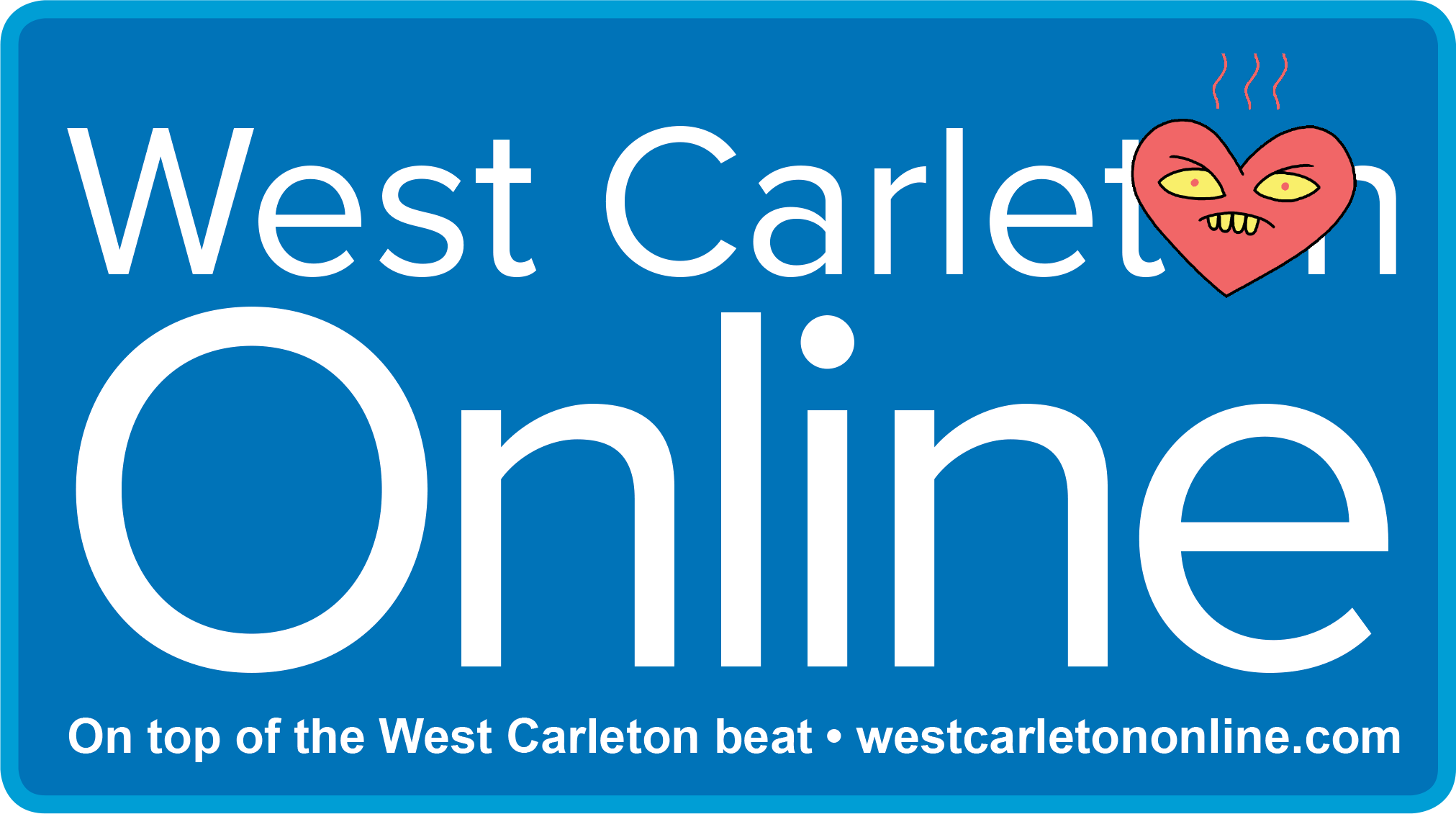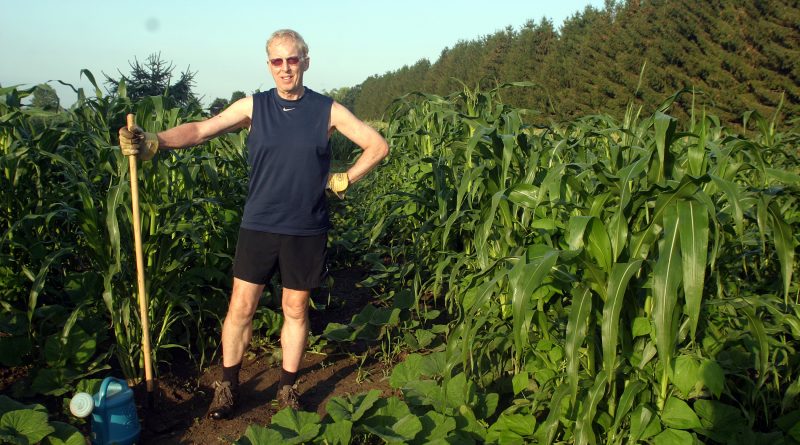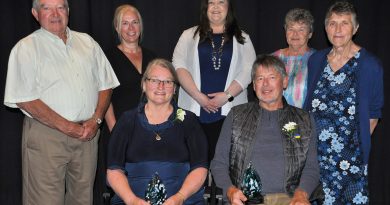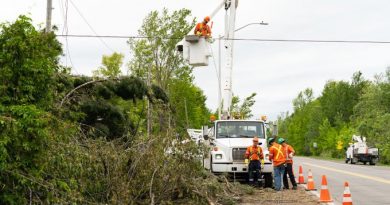Three Sisters garden pilot project
By Jake Davies - West Carleton Online
KINBURN – Dr. Bruce has been spending his summer mornings this year working the land and growing some produce all to test the feasibility of a project that rolls two important, life-lengthening habits into one fruitful endeavor.
Three of four times a week, depending on the phase the garden is, around 6 a.m. he hops on his bike and pedals the nearly 10 kilometres to his garden.
Just off Donald B. Munro Parkway, Dr. Bruce has a 2,000 square foot garden growing. He is using the Three Sisters method of gardening, growing corn, beans and squash, hauling all his water, and using absolutely no fertilizer, pesticides or herbicides.
“it’s a pilot for a fitness option for people who don’t like to work out,” Dr. Bruce told West Carleton Online very early July 31 morning while tending to his garden. “It’s purposeful, productive exercise. The messages are multiple: eat more plants and less meat; produce, store and distribute more food locally because 80 per cent of food Canadians consume is imported; fitness levels and dietary choices have a profound impact on the likelihood of having a chronic disease.”
The Three Sisters method dates back to the First People. It is a process where indigenous people would start with small mounds of earth and plant corn in the middle. They would surround the corn with beans that could use the corn stalks to grow. The mounds are then surrounded with squash plants which cover the garden soil with their broad leaves helping keep moisture trapped in the soil while preventing the growth of weeds.
Dr. Bruce chose the Three Sisters method of growing because of its simplicity and its effectiveness.
“When I started looking for a natural technique, this was probably the most efficient one,” he said. “First Nations people have the world’s most advanced methods of growing food without the use of mechanization, pesticides or herbicides. It’s quite feasible for one person to tend this garden.”
Nutritionally, Dr. Bruce says those three plants provide calories, starch, vitamins, fiber, “almost a complete set of amino acids,” and all can be stored for a significant amount of time.
“This whole idea started as a medical project,” Dr. Bruce said. “Physical activity and diet are huge determinants of heath. The whole purpose of this is to get some activity. My theory is most people aren’t exercising. It’s expensive to join a gym, people don’t have time and they don’t get anything out of it after they are done. At the end of this, you get a crop of vegetables. There are no machines involved, it’s all manual labour.”
Dr. Bruce says he is unsure if he as lost any weight, but he is positive he is gaining muscle from his gardening project and his fitness level has increased.
“My routine is to get up before 6 a.m.; hop on my bike for 9.5 kms; work for an hour, bike home and have breakfast,” he said.
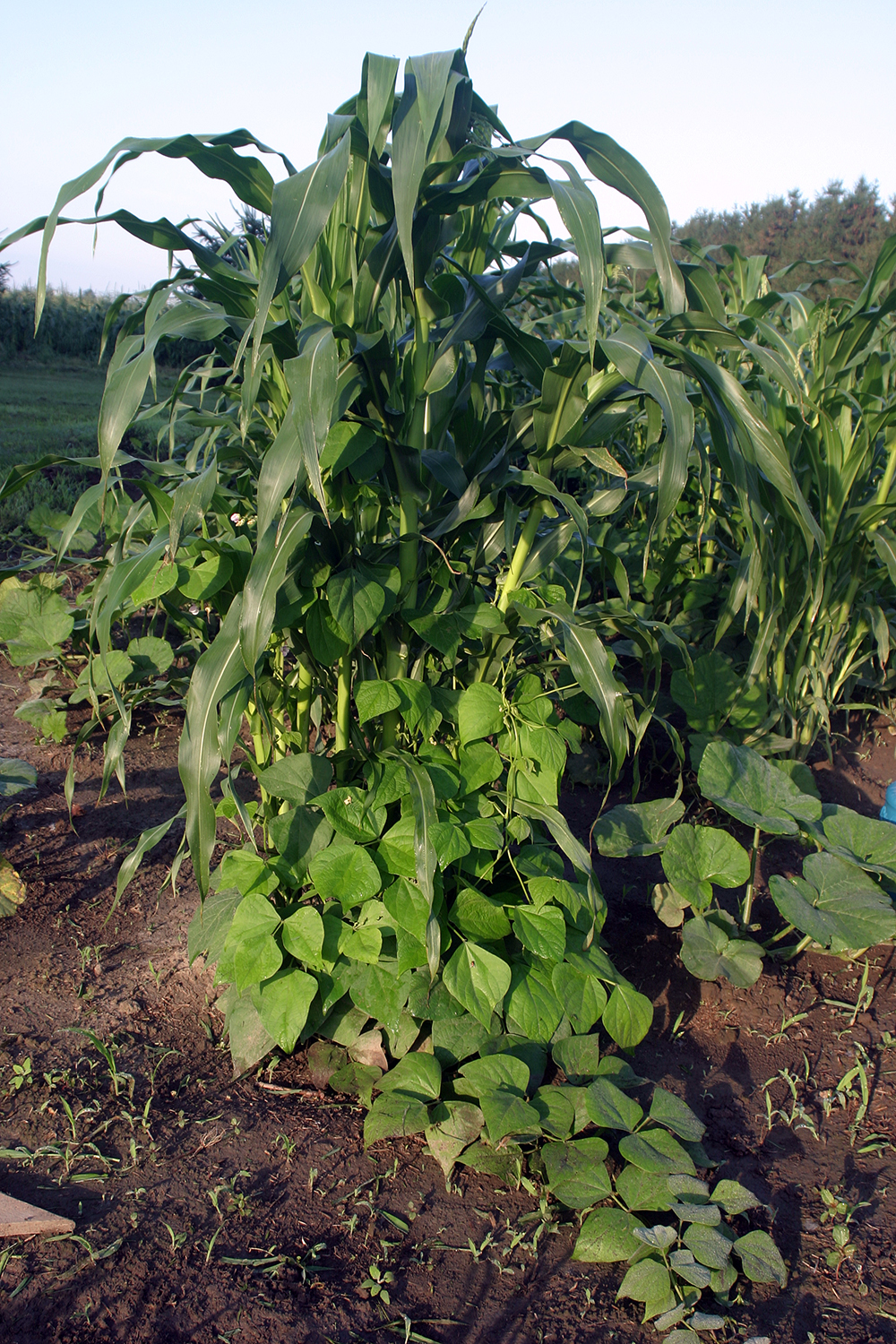
Dr. Bruce hopes he can continue to expand the project and bring some volunteers in. At the end of the season he and the volunteers would divide up the produce with 1/3 going to the gardeners; 1/3 going to market to cover garden expenses; and 1/3 of the produce donated to the area food bank.
“There are many plots of land, even in the city, that are right now just growing weeds that can easily grow food,” he said. “It’s quite risky the way we eat now. Highly processed food our grandmothers wouldn’t recognize. Our bodies haven’t evolved fast enough to process it properly. We also eat way too much meat.”
Dr. Bruce says he’s currently pulling together some “delicious recipes” focused on the produce from his garden.
In the end, he expects an increase of 10 per cent of the population being fit (it currently stands at about 20 per cent) would be enough to make a significant reduction to stresses currently being placed on the health system.
“We’re always going to need hospitals, but the volume will go down,” Dr. Bruce said. “We spend roughly $55 billion per year for healthcare. Hospitals and drugs make up 50 per cent of that cost. I think more of that needs to be spent on prevention and promotion of good health.”

